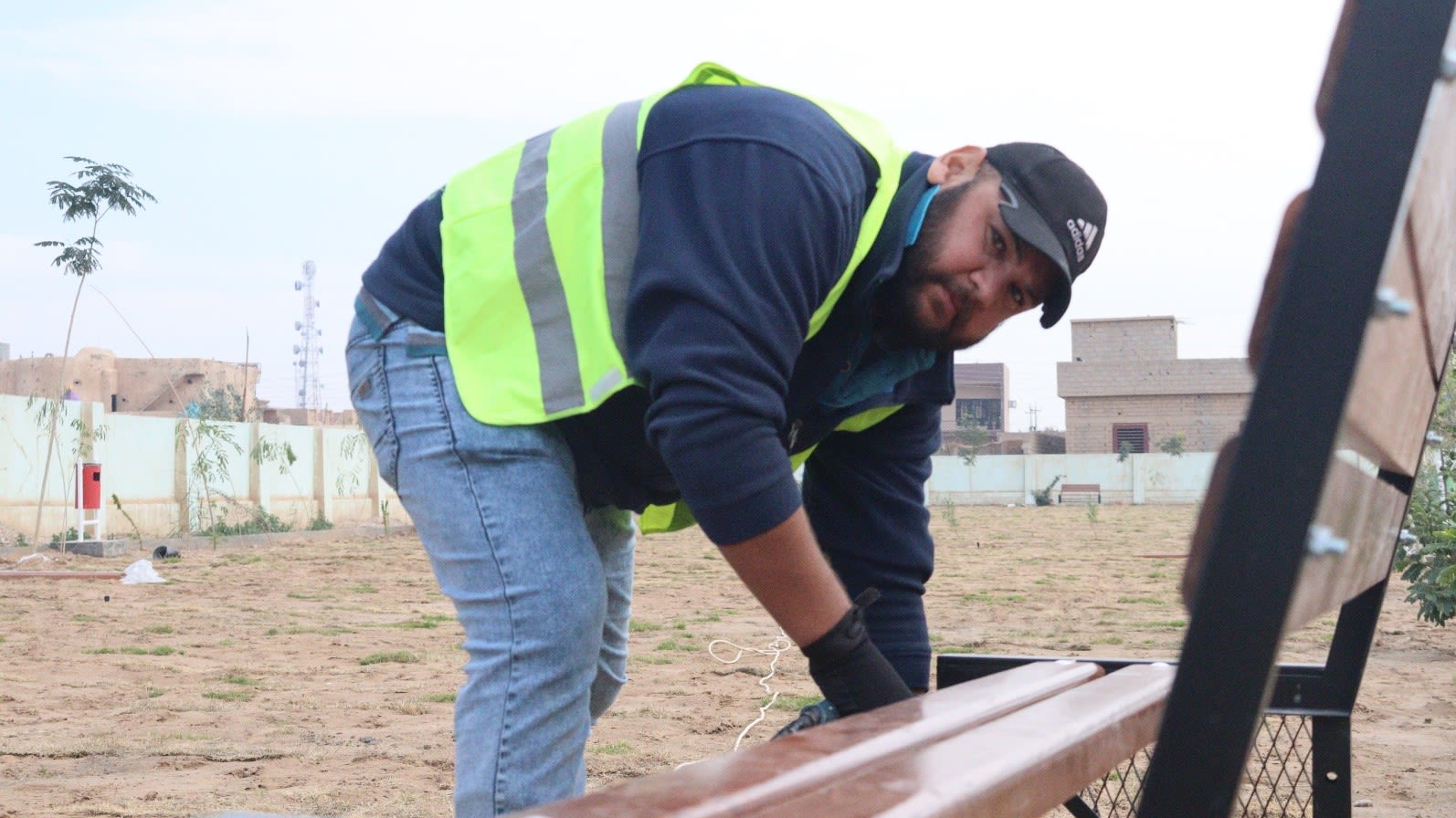When dreams come alive: Integrated psychosocial livelihoods support gives previously displaced families a second chance
December 14, 2022

Photo: Shutterstock. 2022.
Providing synchronized access to safe and sustainable livelihood opportunities and Mental Health and Psychosocial Support (MHPSS) provides post-conflict communities the chance to flourish and contributes to the sustainable reintegration of returnees from displacement, including families perceived as affiliated with ISIL. UNDP, with implementing partner World Vision Iraq, and generous support from the Government of Japan, has kicked off the “Socio-Economic and Community Resilience for the Prevention of Violent Extremism – SERVE” project in Rummanah (Anbar Governorate), Tal Afar (Ninewa Governorate), and Baiji (Salah al-Din Governorate).
Trauma and stress often prevent successful participation in livelihood and economic reintegration programmes. In turn, lack of economic livelihood opportunities may leave individuals vulnerable to violent extremist groups, to meet their needs for survival. Therefore, psychosocial needs are intertwined with economic recovery, and for Iraq, a country recovering from decades of traumatic conflict, a combination of MHPSS and livelihood support is crucial for communities to thrive.
The project will expand protection spaces for vulnerable community members, implementing MHPSS and PVE services through capacity building. The project will see 160 individuals benefit from opportunities to rehabilitate basic infrastructure through a Cash for Work scheme and receive business grants, 140 individuals receive vocational training through a 3-month programme, and 300 individuals receive MHPSS support. Most individuals were displaced during the conflict with ISIL and have since returned to their communities.

Photo: Noor. 2022.
Noor, 23, was displaced for three years, before returning to Rummanah in 2019. Due to financial problems, she did not continue her education following primary school.
“It was always my dream to have the opportunity to develop my hobby and support my family. Today I am learning in a beauty salon, enjoying it, and growing every day,” says Noor.
"Having a respectable status in my community and supporting my family are the things I will strive for when I open my own beauty salon,” she says.

Photo: Thamer. 2022.
Thamer, 30 years old, is married with three children, one of whom has special needs. Thamer was displaced for four years before returning to his birthplace in Rummanah. He has completed primary school education and has trained for men's hairdressing, but his responsibilities have prevented him from opening a barbershop.
"In addition to being accepted from the Cash-for-Work programme, I look forward to establishing my own business through the grant provided,” he says.

Photo: Sahera. 2022.
Sahera, 46, was displaced for three years, returning to Tal Afar in 2018. She could not complete her secondary school education due to financial burden.
“After losing my husband during the war, I felt everything was falling apart. The responsibility of taking care of my family was constantly growing."
“I tried many times to start my own business, but I didn’t have the necessary skills. Now I am motivated and excited to start my own business in the sweets industry to support my family and make my dream come true.”

Photo: Ali. 2022.
Ali, 36 years old, is a graduate from the Institute of Accounting, captain of the local volleyball team, and responsible for supporting five family members. He was not able to follow his dream and become an accountant. Ali was displaced for five years before returning to his place of birth, Tal Afar.
“Being part of this vocational training gave me the chance to expand my social network, providing experience for me to depend on myself and start working in a new field.”

Photo: Marwan. 2022.
Marwan, 33 years old, is married with five children. Marwan’s brother was murdered by ISIL, and he was injured by remnants of the war, leading him to suffer from both psychological and physical injuries. His 13-year old son dropped out of school to contribute financially to the family through day labor jobs.
Marwan was displaced for four years before returning to his birthplace in Baiji. Participating in Cash-for-Work activities and receiving a business grant to re-build his workshop to repair cars, Marwan’s son will return to school and he can secure a future for his family.

Photo: MHPSS session. 2022.
Psychotherapist Ahmed Abdel-Rahman works with community members, providing community sessions and counselling on topics of interest. He notes that as terrorism coincides with poverty and displacement, dangerous effects such as anxiety, depression, trauma, social phobia, and panic appear in society.
“We were able to identify cases that need psychological support, and the participants were divided into groups. We facilitated multiple sessions that help the beneficiaries to overcome trauma, anxiety attacks and depression.”
-Ahmed Abdel-Rahman.
Baidaa, from Rummanah, noted that she has experienced anxiety and fear after witnessing the killing of six of her relatives by ISIL. She indicated that attending MHPSS sessions has helped her to identify feelings of anxiety and how to cope with stress.
The “Socio-Economic and Community Resilience for the Prevention of Violent Extremism” project will run until March 2023, as part of UNDP Iraq’s Social Cohesion Programme.

 Locations
Locations